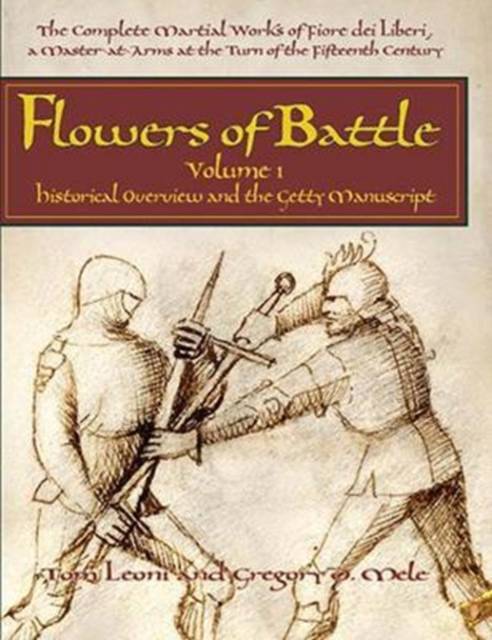
- Afhalen na 1 uur in een winkel met voorraad
- Gratis thuislevering in België vanaf € 30
- Ruim aanbod met 7 miljoen producten
- Afhalen na 1 uur in een winkel met voorraad
- Gratis thuislevering in België vanaf € 30
- Ruim aanbod met 7 miljoen producten
Zoeken
€ 138,95
+ 277 punten
Omschrijving
The warriors of medieval Italy practiced a complex and complete martial art, which included the wielding of sword, axe and spear with wrestling, knife-fighting and mounted combat. In the waning years of the 14th century, Fiore dei Liberi was a famed master of this art, whose students included some of the most renowned and dangerous fighting men of his day. Credited by fencing historians as the father of Italian swordsmanship, toward the end of his life, Master Fiore preserved his teachings in a series of illustrated manuscripts, four of which have survived to the present day, and have become the basis of a world-wide effort to reconstruct this lost martial art. This magnum opus, il Fior di Bataglia (The Flower of Battle), composed in early 1409, is one of the oldest, most extensive, and most clearly elucidated martial arts treatises from the medieval period. Freelance Academy Press is proud to announce Flowers of Battle, a multi-volume series of lavishly illustrated, hard-cover books, combining full-color facsimiles of the master's original manuscripts; professional, annotated translations; and extensive, peer-reviewed essays. Vol. I: Historical Context and the Getty Manuscript Vol. II: Florius de Luctandi Vol. III: Flos Duellatorum Vol. IV: A tradition with Deep Roots--The Morgan Ms, Later Transmissions and General Concordance Vol. I: Historical Context and the Getty Manuscript presents a complete translation, transcription and reproduction of the largest and most complete of the manuscripts. Serving as a sourcebook for the entire series, it also includes chapters on the life of Fiore dei Liberi, his students, and patrons, arms & armour in the Getty Manuscript, dueling and chivalric culture in Italy at the close of the 14th century, a detailed analysis of the manuscripts' use of pedagogy, number and metaphor and the Flower of Battle's relationship to other medieval combat manuscripts. Not only a record of a complete, medieval martial tradition, this work provides unique insights into the life, mindset and milieu of the professional fighting man at the birth of the Italian Renaissance.
Specificaties
Betrokkenen
- Auteur(s):
- Uitgeverij:
Inhoud
- Aantal bladzijden:
- 356
- Taal:
- Engels
- Reeks:
Eigenschappen
- Productcode (EAN):
- 9781937439187
- Verschijningsdatum:
- 15/11/2017
- Uitvoering:
- Hardcover
- Formaat:
- Genaaid
- Afmetingen:
- 218 mm x 282 mm
- Gewicht:
- 1632 g

Alleen bij Standaard Boekhandel
+ 277 punten op je klantenkaart van Standaard Boekhandel
Beoordelingen
We publiceren alleen reviews die voldoen aan de voorwaarden voor reviews. Bekijk onze voorwaarden voor reviews.











